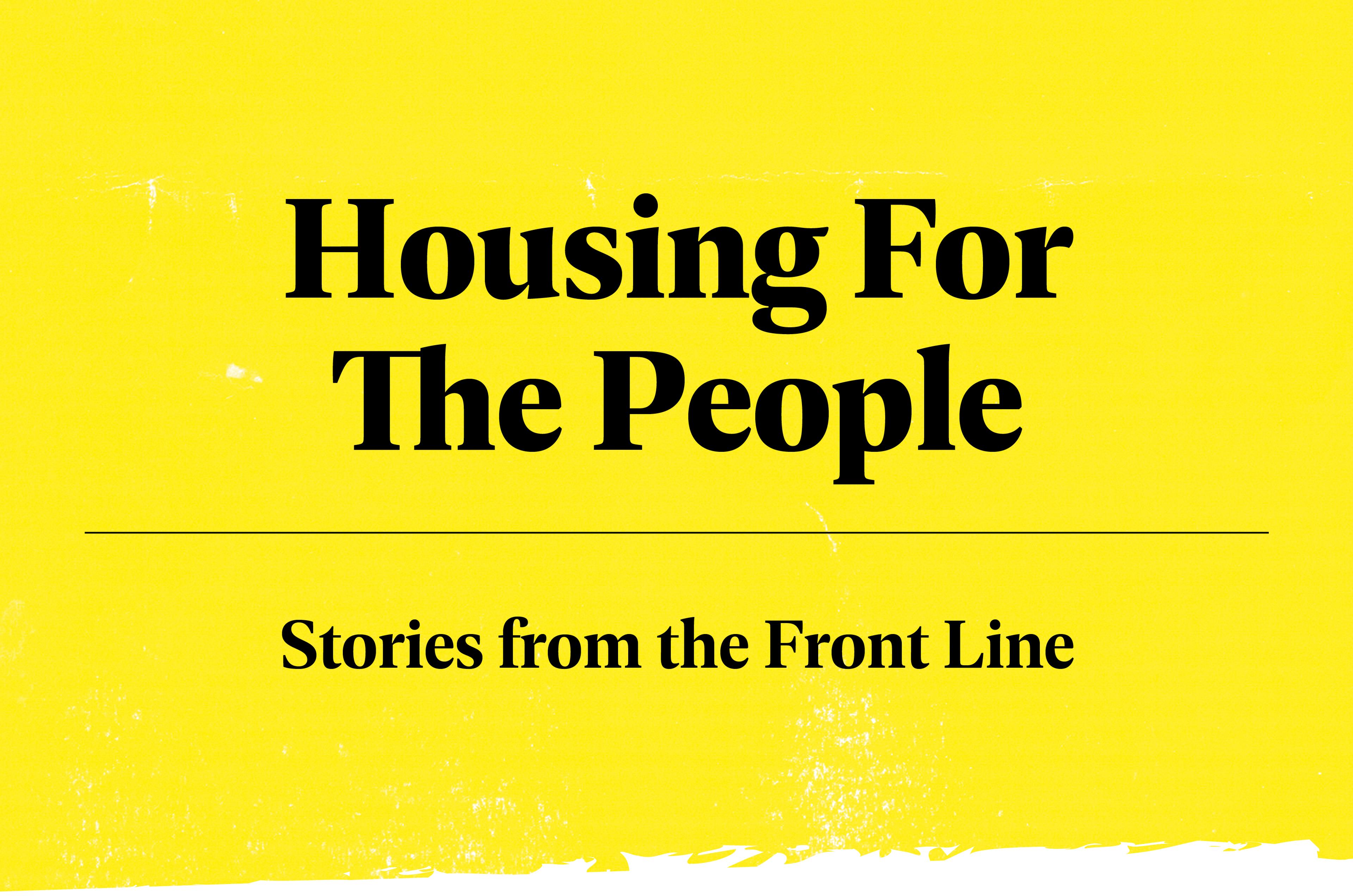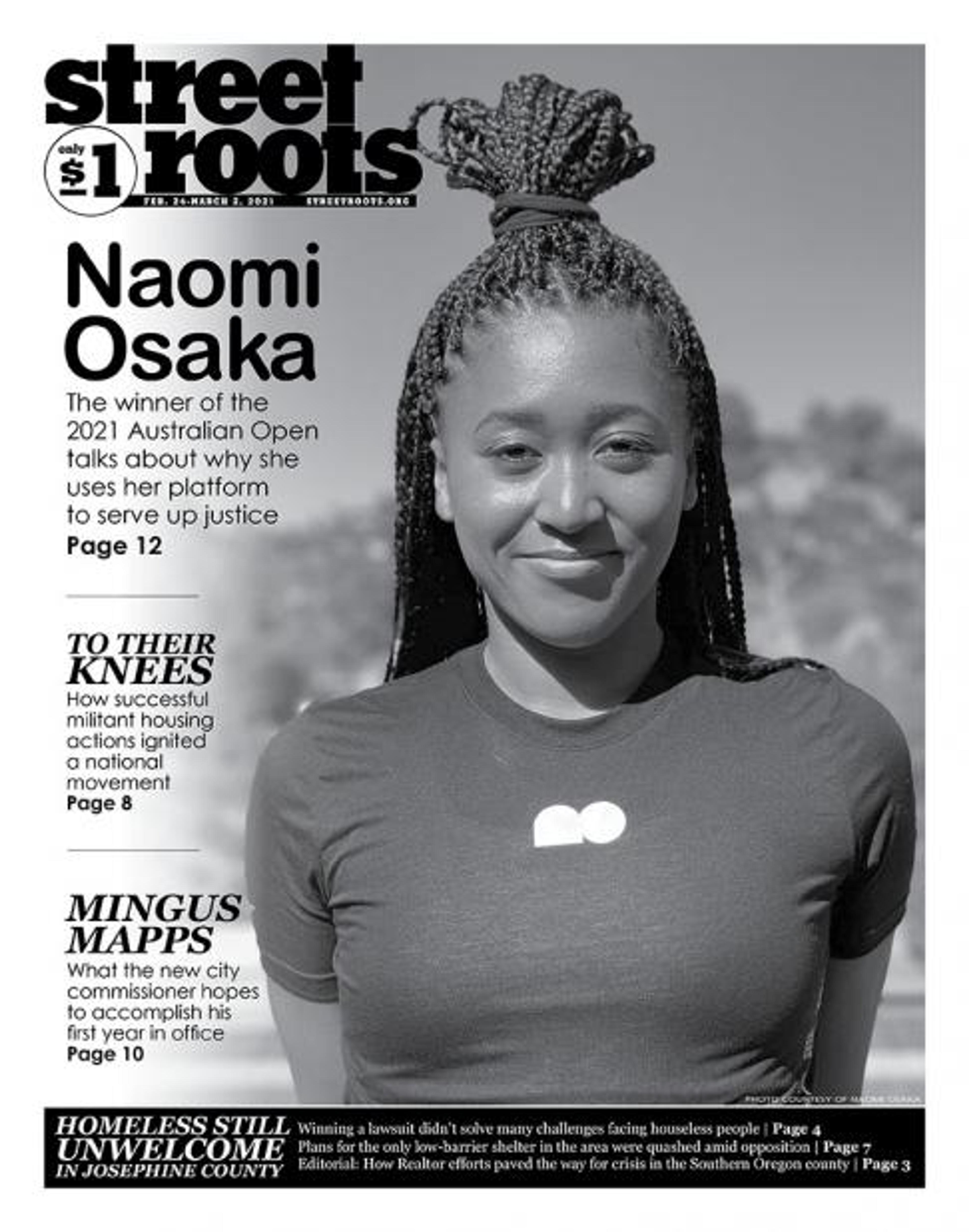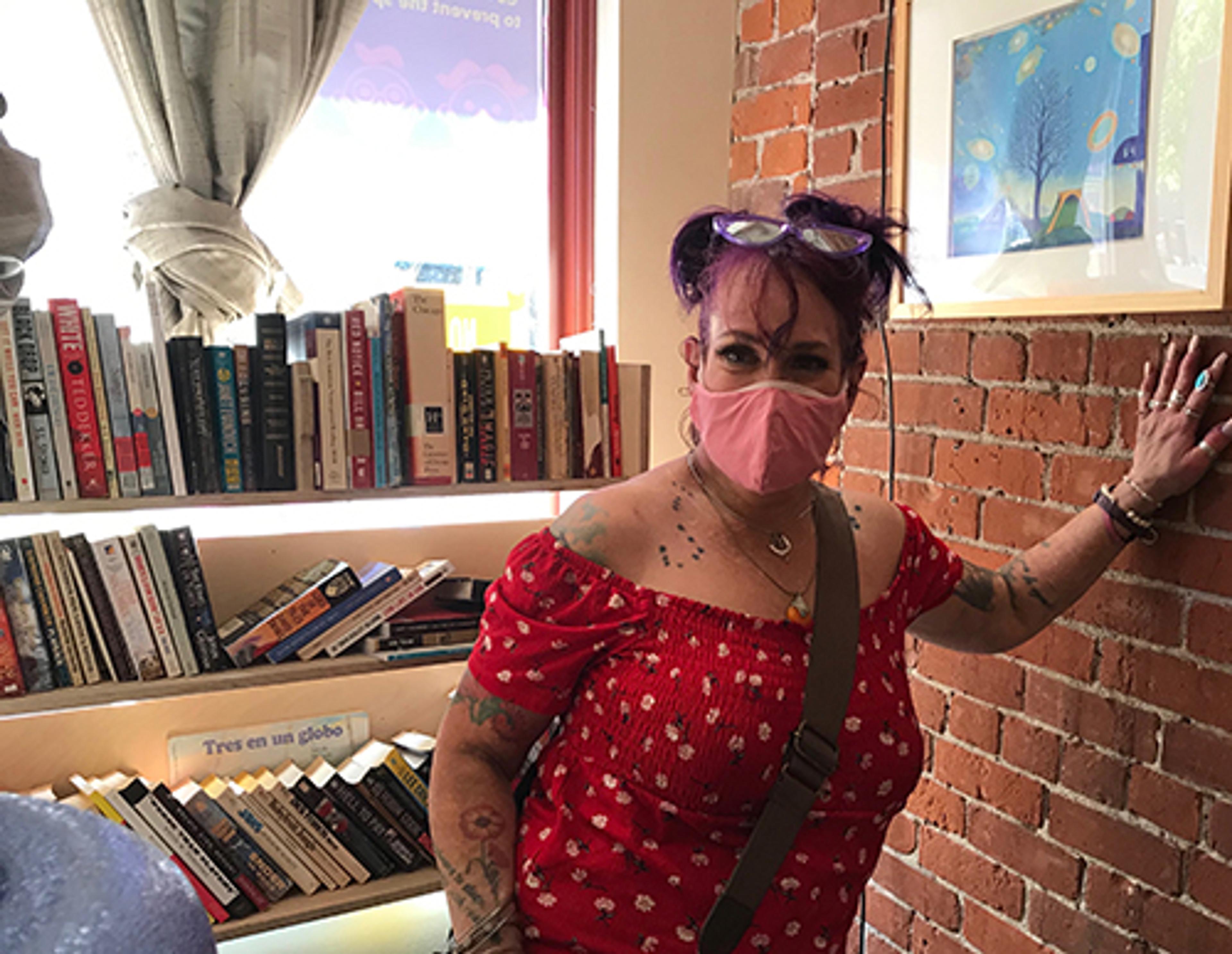Housing for the People: “The landlord greed machine”

By Bronwyn Jones Carver
- Lived experience

Street Roots vendor Bronwyn Jones Carver has been homeless since a landlord tried to raise her rent by nearly 100 per cent in 2015. Approaching seven years on the streets, she's learned to adapt and reach for new heights.
My name is Bronwyn Jones Carver. I have been homeless for seven years this June.
At the time, Portland was just starting to experience the landlord greed machine as they raised rents by ridiculous amounts. I was no exception to this. My two-bedroom apartment in inner southeast Portland — where I had lived for 15 years, raised a family, buried pets and planted flowers — became a casualty of said greed.
I paid $850 a month, and the landlord’s son wanted to raise it to $1,625.
The increase was not acceptable, let alone affordable. I worked a job I would soon leave due to the burden of high stress. My husband was not employed at the time. I agonized over the impending no-cause eviction. It was June 2015.
We went to court to try to mediate an agreement. We had been late twice in the previous five years and could not understand why this was happening. Court was a joke. The judge sided with the landlord and told us we could reapply at the new price of $1,625. Our other option was to vacate voluntarily by June and avoid a formal eviction.
Needless to say, we vacated. My husband and I moved into our minivan with our three cats in tow.
I tried to make it a positive thing, some kind of adventure we were setting out to encounter.
I couldn't have been more wrong.

Bronwyn Jones Carver says housing is no longer a dream for her, though she does miss the home she raised her children in. Photo by Street Roots.
That summer, we dealt with extreme heat, and I did not know how to cool us down. As the summer moved into fall, we continued to live in the van.
We would park for as long as we could in various spots away from the public's view, so as to maintain some form of privacy. Portland Bureau of Transportation, commonly referred to as PBOT, seemed to be following us. Each time we found a new spot that seemed out of the way, they would post us for removal.
Each time, we packed up and off we went in search of another spot.
As fall turned to winter and the rain came, we discovered the places our van leaked. We discovered how the cat litter would get soaked and spread everywhere. When the cold snap hit and temperatures got so low — into single digits — my husband, myself and our three cats laid under a pile of blankets, shivering and praying we not die that night. It was horrible. Neither of us had any idea how to stay warm.
Our van was slowly starting to have mechanical issues, mostly struggling to start, and PBOT was hot on our bumper, posting those green notices everywhere we parked. Nowhere was safe.
I began to get really depressed. The husband and I started to bicker over stupid things. The stress of living in the van in such a tight space was unraveling our marriage.
The cold continued, and the snow that started to fall added to the frigid temperature in the van. I worried for the cats more than myself and my spouse. We then saw the Mister Buddy indoor heater another friend used inside their tent. That little heater saved our lives, I am sure. The radiant propane heat was so warm. I can still remember how good that first bit of heat felt on the body. The cats stopped shivering, and it helped to dry the inside of the van.
After two years of PBOT chasing us around Portland and placing those green stickers on our windows demanding we move, the van was no longer registered. My husband and I were unemployed, so there was no money to register the vehicle.
One Thursday afternoon, PBOT caught up to us. We had parked the van in a spot we thought was OK. It turns out that once you are issued the green notice to move your vehicle, PBOT then excludes you from the "zone" where you have been stickered. However, there is no mention of this on those green stickers, and I found it impossible to decipher what zone I was in.
The police also showed up and asked how long I needed to remove my contents. I said, “an hour,” to which the officer replied, “I will give you 30 minutes.”
“Then why did you ask me if you already knew how much time you were going to give me?” I responded.
I was livid. I scrambled to get as much out as I could. Then the cats and I watched our home for those two years get towed away. I cried so very hard that night as we lay under a tarp in the parking lot in the rain. The next day, my husband came up with a tent and set up a camp for us. That was 2017. We have been camping since.
Housing is not really a dream for me. I have a travel trailer now. I got it for free, and it is in great condition. I will be living in the camper as soon as I find a place where PBOT will not hassle me.
There are times, though, when I mourn the apartment where my daughters grew up. I miss the color of the living room and how warm and inviting it looked from outside the window. I reminisce about celebrating the highs and getting through the lows together.
I don’t know what the immediate future holds. My husband and I are trying to work things out, as we separated for the last two years. My mental health was a subtle killer as I allowed it to run my life, succumbing to the negative speak and being negative all the time. This was a huge factor in my husband's “taking a break."
I have worked on myself to be a better person, and I am. I owe so much to Street Roots for giving me the opportunity to submit my poetry, which they print, as well as attending the Mobile Journalism and Communications program, which will give me the tools to write for Street Roots and other publications.
I already pitched my first freelance story outside of Street Roots in late February. The pitch was accepted and published by a digital publication.
Writing is my everything, and I give it my everything. I write because I must. It helps to deal with the reality that is my life. I love when my husband, family, and those at Street Roots who believed in me and my words, are proud of my work.
I, too, beam with pride.
Housing for the People is a column produced by the International Network of Street Papers from people on the frontlines of the housing justice movement in America and beyond.
Courtesy of INSP North America / International Network of Street Papers
